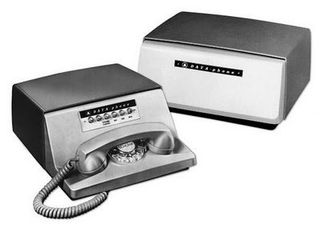Are Intel planning talking routers?

Tied of your boringly quiet peripherals? Nostalgic for the days when hardware made a proper noise? Do you long for your SSDs to chirrup like a tape loading ZX Spectrum , or your keyboard to click like an old IBM model M ?
Seems you are not alone in your antipathy towards the dull silence of the modern microcomputer. According to a report on New Scientist , Intel has just filed a patent for WiFi routers and dongles that can literally talk to each other.
It's not quite a return to the days when establishing an internet connection meant putting up with a couple of minutes of noise like nails on a blackboard – although it could be if you want. The patent covers a plan for fitting WiFi devices with a speaker and microphone, so that instead of typing in a passcode when you want to establish a connection for the first time a new laptop would be able to shout out its presence for the router to hear and verify.
The idea is that this could prove to be a simpler and more secure way of logging devices onto the network, especially as more everyday appliances become internet aware. Potentially, given the right interface for authorising a new device at the router side, it neatly sidesteps a lot of the potential problems of what happens when your Gran buys a new smart TV or internet enabled washing machine , for example. No trying to enter a passcode with a remote control for her, just turn it on and hear it sing.
Why bother with all this , you might ask, since the proximity of the two devices means they can talk over WiFi anyway? The reasoning seems to be that this is a more secure second factor key. A drive by hacker trying to get onto your network would need to be able to listen to and reproduce the audio tone as well as any encrypted key sent as raw data. And that's not going to be easy unless you leave a window open.
Presumably, the success of the system hinges on the ability to customise a tone to your personal network. I hope to be able to use a wav file of Tibetan chants myself.
The biggest problem I can see, though, would be that the new device would have to be within earshot of the router – something that's not necessarily true if your net connection comes into a spare bedroom/home office, for example.
PC Gamer Newsletter
Sign up to get the best content of the week, and great gaming deals, as picked by the editors.
Most Popular




